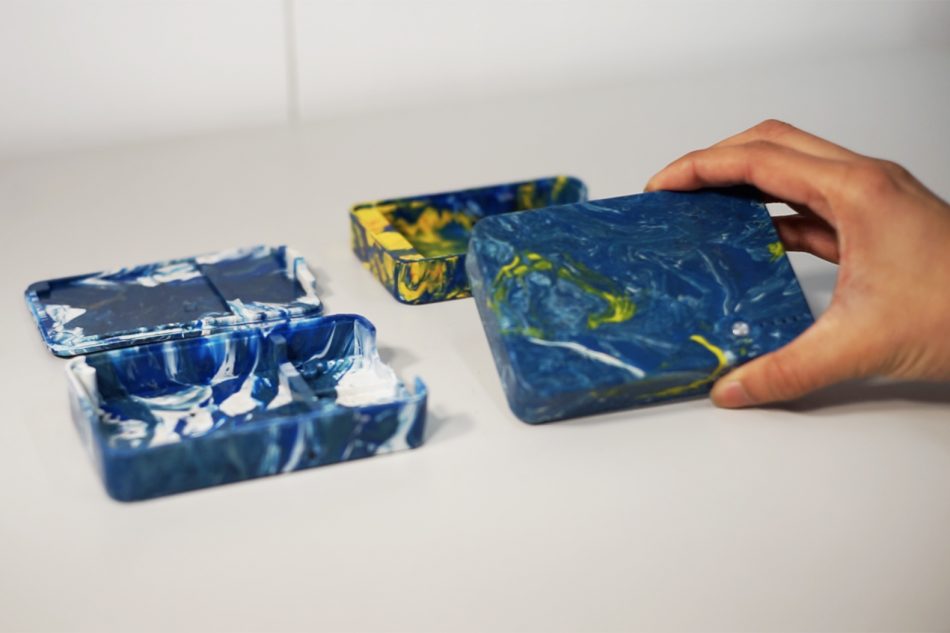Flexible plastics such as plastic bags, bubble wrap and pallet wrap are typically turned away from recycling facilities because of their supposedly low commercial value. Each year, the world produces 150 billion kilos of such non-recyclable plastic, all of which are most likely to end up in landfills and polluting the environment.
Enter Gomi, a Brighton-based sustainable studio that has figured out a way to recycle these “low-value” materials into not only fully-functional but also beautiful gadgetry.
Its latest product made from “non-recyclable” plastic is a good-looking portable charger that is also intended to raise awareness about the pollution problem around batteries: while both single-use and rechargeable batteries, such as lithium and button batteries, are recyclable, not all areas have access to recycling.
To make the product, Gomi is using two streams of waste – plastic and batteries – and transforming them into high-powered everyday portable chargers. The batteries are gathered from local manufacturers and battery suppliers who are unable to use the batteries due to misprints or cosmetic irregularities.
As for the plastics, Gomi works directly with food wholesalers, businesses and individuals around the Brighton area “intercepting” non-recyclable plastic waste before it’s sent to landfills. As a result, the Gomi portable chargers are powered by repurposed batteries and made of 100 percent non-recyclable plastic. Also, due to its artisanal manufacturing process, each device has a unique marbled pattern, giving users a truly individualized accessory.
What’s more, for the sake of circularity, all of the device’s parts are designed to be modular and easily removed to melt into new components for other products. The company hopes to work with jewelers in the future to extract metals from the circuit boards of its products as well.












